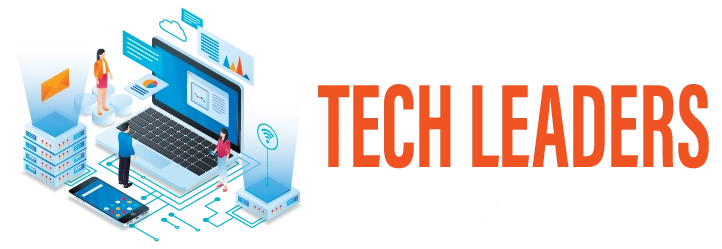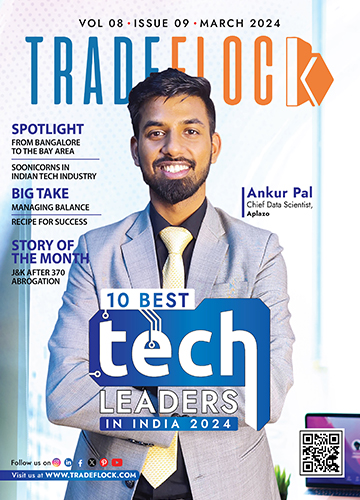
Shaping the Future of Technology with Strategic Leadership
Prasad Rao
Director IT,
Contentstack Inc.
In the current business landscape, success depends on a ‘Solution First’ approach—a strategic mindset that places effective problem-solving at the forefront of organisational endeavours. This philosophy champions innovation and emphasises the proactive pursuit of solutions to drive business value and foster high-performance teams. Prasad Rao’s career embodies the essence of this forward-thinking approach. With over 22 years of experience, Prasad, the Director of IT at Contentstack Inc., has navigated the intricate world of enterprise IT infrastructure operations, security, business continuity, and hybrid cloud infrastructure. His journey, originating in the education and healthcare sectors, has evolved to encompass diverse industries such as EdTech, FinTech, Healthcare, IT Services and held prominent roles in all these industries.
Prasad brings a wealth of expertise in implementing IT Service Management (ITSM) procedures. His leadership is characterised by a meticulous approach to incident management, RCA/problem management, change management, SLAs, and the integration of cutting-edge tools. Prasad’s strategic acumen is further evident in his role as a technology solutions architect, shaping roadmaps for cloud infrastructure and driving continuous evolution within the organisation. Prasad’s leadership is not confined to technology alone. His financial stewardship, marked by effective budget management and a perpetual quest for optimisation and rationalisation opportunities, underscores his commitment to holistic organisational excellence. As a true advocate for world-class practices, Prasad ensures the development of high-performance, secure, and reliable systems, fostering an environment of continuous improvement.
In a recent interview with TradeFlock, Prasad provided insights into his dynamic career journey, which started from the grassroots of IT support and evolved into navigating the diverse landscapes of healthcare, IT services, and fintech. Motivated by the thrill of dynamic environments, he has consistently embraced new challenges, contributing his expertise across various sectors.
What challenges did you face transitioning from established enterprises to the startup world?
Transitioning to the startup world, particularly in fintech, was motivated by the dynamic and fast-paced environment. Adapting to the accelerated pace and diverse cultures posed challenges, notably in emphasising the importance of security and compliance within the startup ecosystem. Convincing management and facilitating a mindset shift towards inclusivity, all while aligning with the startup ethos, were crucial aspects of ensuring a smooth transition.
How do you inspire innovative thinking in teams with your experience in both enterprise and startup settings?
Navigating both enterprise and startup environments shaped my approach to inspiring innovative thinking. In startups, I foster a collaborative leadership style, encouraging experimentation with a fail-fast mindset. Emphasising a profound understanding of business impact and detailed analysis before implementation cultivates a culture of innovation and trust. Regular brainstorming and whiteboard discussions are integral, fostering collective problem-solving and groundbreaking ideas while maintaining a focus on practical business implications.
How do you ensure seamless ITSM procedure implementation and develop incident, problem, and change management processes?
When it comes to ITSM, my strategy centres on aligning procedures closely with business needs, stressing the importance of analytical skills in addressing incidents. It’s vital to move beyond a textbook approach, ensuring teams grasp the real business impact of incidents. I advocate for an in-depth exploration of industry-specific technologies and the strategic implementation of AI where there’s a clear, long-term benefit. Successful ITSM procedure implementations hinge on collaborative efforts involving cross-functional teams spanning engineering, product, and finance, ensuring a seamless integration of incident, problem, and change management processes.
How do you anticipate the impact of generative AI, particularly in design, marketing, and automotive applications?
Generative AI holds transformative potential across industries. In design and marketing, it can revolutionise creative processes, while the automotive sector may see significant changes in autonomous driving technologies. However, successful integration requires careful regulation, thoughtful application, and industry-specific insights. A cautious approach is vital to unlocking benefits while mitigating risks. We stay prepared through collaboration with experts and staying updated on generative AI developments.
Can you share key milestones from your career achievements?
In my career, a major milestone was transitioning from on-premises to cloud migration, addressing security concerns and achieving a remarkable 40 percent cost reduction. Introducing security and compliance awareness across all functions was pivotal. In my current role, optimising SaaS subscriptions and cloud spending stands out as a noteworthy achievement. Additionally, cleaning up an extensive SaaS universe enhanced data security and yielded substantial cost savings.
How do you build solution-focused teams amidst the rise of millennials in IT?
Addressing the growing millennial presence in the IT workforce necessitates a customised strategy for building high-performance teams with a solution-first approach. Collaborating with millennials involves recognising their desire for autonomy and experimentation. Creating an environment that sees failures as learning experiences and promoting detailed impact analysis before implementation has proven effective in fostering high-performance teams.
Regular training sessions, focused on solution-oriented thinking and understanding the long-term impact of individual contributions, play a pivotal role in aligning the team’s approach. This approach not only embraces the unique characteristics of the millennial workforce but also nurtures a culture of continuous improvement and proactive problem-solving.
What's your take on the future of technology, particularly with evolving generative AI, and how are you preparing for it?
Anticipating the future of technology, especially in the context of evolving generative AI, is an exciting yet uncertain journey. Recognising its transformative potential, I advocate for a meticulous, industry-specific implementation approach. Rather than relying on long-term plans, our strategy emphasises short-to-medium-term flexibility, allowing us to adapt to disruptive technologies while ensuring comprehensive pre-implementation assessments. To stay ahead of the curve, we prioritise ongoing upskilling initiatives and maintain a vigilant eye on emerging technologies, ensuring our preparedness for the ever-evolving technological landscape.











